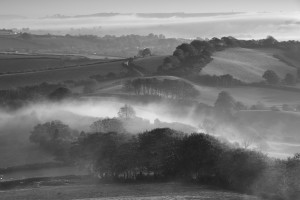A British film directed Robert Fuest, written by Brian Clemens and Terry Nation
I recently rediscovered this film – I remembered it being in black and white, but no, it’s in glorious technicolor. It’s a compelling psycho-thriller/horror, uncannily hypnotic, tapping into fears of being an outsider and unable to make oneself understood, and of being watched and followed by sinister strangers – but which one presents the real danger?
Two English nurses, Jane (Pamela Franklin) and Cathy (Michelle Dotrice) are on a cycling holiday in rural France. The landscape is flat, the road straight, the sky cloudless – a folk-horror setting, eerie and threatening even in bright daylight. The girls disagree – Cathy is finding their progress tedious and wants to meet people and have fun. Jane want to see more of the countryside. A young man on a scooter appears to be following them.
There’s an argument; Jane leaves Cathy sunbathing at the edge of a wood beside the road and continues on her way. A while later, she waits at a roadside cafe (the ominously named “Store at the Bad Turn”) for her friend to catch up – but Cathy doesn’t appear.
The stage is set. We watch as Jane searches for her missing companion. The tension builds as she learns (with difficulty, as her French isn’t good) that there was a murder in the area some time ago. The language barrier contributes to the air of menace; there are no subtitles provided, so when the local characters are speaking French, understanding isn’t complete – like Jane, we’re confused and can’t make sense of what is happening. As in all effective thrillers, each person she meets could be a suspect – the young man following the girls, the café proprietor and his wife, the distant figure in the fields, the English woman in the car.
What gives the film it’s uncanny quality?
It’s the mood of open-air claustrophobia; the landscape is wide and empty but at the same time restrictive and threatening. Despite all the apparent movement – Jane shifts between the hotel, the wood, the police station and the roadside café, back and forth, by bicycle on her own, on the scooter with Paul, in the car with the English woman and again on her own, running from the wood – she is confined to the same stretch of road, tracing and retracing her steps, watched from afar by the sinister old farm labourer. Eventually, we lose our bearings; which way is she going and to what end?
Motifs and themes recur. The music playing over the opening credits is repeated on Cathy’s transistor radio when she is sunbathing in the woods. The first shot of the film, of the girls cycling along the road, is repeated in the last shot, when another two cyclists appear on the same road, pedalling into the same danger. Jane is repeatedly told by different characters to “stay here, wait for me here”. She asks the café proprietor to speak more slowly, and in turn she is asked the same by the policeman. Cars repeatedly speed along the road, and they might offer a way of escape, but no.
The final scenes crank up the tension, increasing Jane’s sense of dread and isolation. We know it’s not going to end happily. And it doesn’t.


![judderman[1]](https://usercontent.one/wp/www.exploringtheuncanny.com/wp-content/uploads/2016/03/judderman1-300x222.jpg?media=1669494305)
